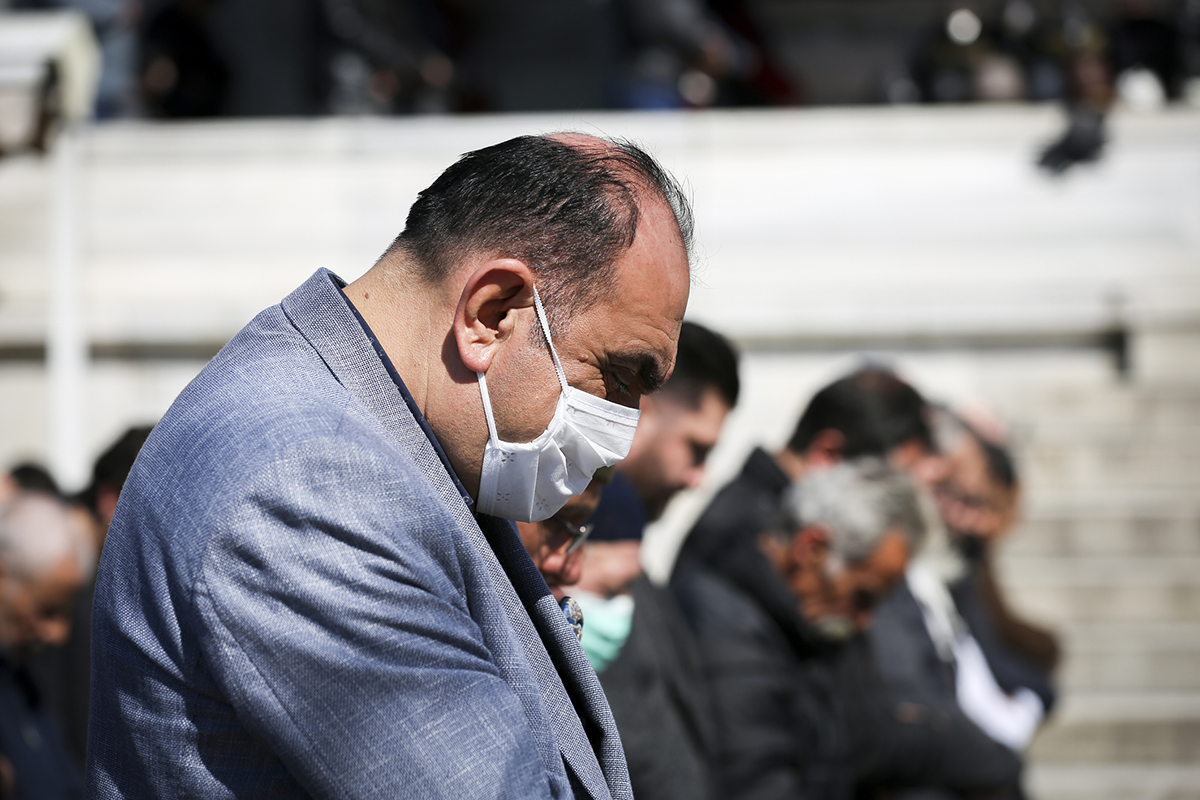

by Matt Bassford
Synopsis: Romans 14 contrasts matters of faith and judgment. Matthew revisits the concept of law versus liberty, applying these ancient principles to the contemporary challenges that churches have recently faced.
The first half of 2020 has been the most chaotic time for our country within living memory. Even World War II did not alter life so dramatically for so many Americans as has the Coronavirus pandemic. Indeed, COVID-19 has directly affected our assembly and worship in ways that previous periods of global conflict did not.
In this unsettled time, congregational responses have been all over the map. Most congregations appear to have shut down, at least for a time, in response to the dictates of the government. Some have continued to meet, insisting that they must obey God rather than men. A church in northwest Indiana, for which I’ve preached, where I have many friends, had its assembly visited by police officers who ticketed the elders.
Even within the subset of congregations that have suspended their meetings, different expedients have appeared. Many churches, my own congregation included, have relied heavily on online tools. We’ve used YouTube, Facebook, and Zoom for various purposes, and we downloaded audio files of congregational singings to play during our live streams to make our worship services seem more congregational. Other congregations have employed short-range FM transmitters to hold drive-in worship services in their parking lots.
As I write this, the elders of my church are preparing for the resumption of limited worship services. However, this morning, I messaged a brother in Illinois who does not anticipate that his congregation will begin meeting again until late June. Whenever churches reopen, they will find it to be a complicated process. The elders’ plans here must take into account the demographics of the congregation, the wishes of its members, the edicts of the government (which sometimes change daily), the layout and HVAC capabilities of the church building, and the financial resources at the church’s disposal. Other churches will use different criteria to reach different decisions.
Some might consider this great diversity of behavior among churches to be a problem, but I believe that it reveals brotherhood-wide faithfulness to God’s pattern. Within the word of God, we find no authority for any church organization larger than a local congregation. For instance, elders are instructed in 1 Peter 5:2 to shepherd only their local flock. When different churches are exploring many different strategies, they have all the right in the world to do so, and no one has any right to dictate to them or interfere with their decisions.
This extreme decentralization is contrary to human wisdom. All of us recognize the desire to make others do what we think they should, and greater degrees of centralization allow us to impose our will on others more effectively. Ultimately, this impulse leads to the formation of massive denominational hierarchies, under which churches and worshipers all over the world must bow to the commands of a single leader.
However, a critique of this logic reveals significant spiritual and practical problems. First, the accumulation of religious power in the hands of men always comes at the expense of the inherent authority of God’s word. Without exception, the more centralized the denomination, the further it has drifted from the truth. Those who believe they know better than others also think they know better than God.
Second, such arrangements also put too much trust in human understanding. As Jeremiah observes in Jeremiah 10:23, it is not in us to direct our own steps. We are not as wise or foresighted as we think we are, and our decisions always have consequences we did not intend. Those who presume to dictate to other congregations must believe that they are exceptions to the rule. However, they are not.
Third, a rejection of congregational autonomy leaves churches less able to meet the needs of their particular situations. As with the appointment of the seven in Acts 6:3, elders are chosen from among the congregation they will be leading. They generally have deep connections both with the members of the church and with the community. Such familiarity helps them to make better decisions for the congregation than any other human being could.
Many imagine that some supreme leader would be able to look down on local churches from the lofty height of his wisdom and power and tell them how they really ought to be doing things. In reality, such olympian decrees can only hinder the work of the men on the ground. The map is not the territory, and churches are not all the same. God’s word properly designates those with the most information and understanding as the leaders of each congregation.
When we practice congregational autonomy, we both honor the will of God and show sound spiritual judgment. During the present distress, our respect for this great biblical principle ought to reveal itself in several different ways.
First, leaders of local churches ought to embrace the liberty that has been entrusted to them. These are uncertain times! Without a doubt, every eldership (along with every men’s meeting) in every congregation has felt the pressure of the decisions that they have been called on to make. In some ways, it would be comforting if there were some central religious authority that told us what to do.
However, God has not given us a spirit of timidity, but of power and love and self-control. The Scriptures command us to show wisdom and exercise sound judgment. When we shrink from that responsibility, we also shrink from being the people Christ calls us to be. It’s good for decision-makers in local churches to weigh options carefully, and even solicit ideas from wise men outside the congregation. However, when the time comes, they must not be afraid to act with faith and boldness.
Second, we must respect the liberty of other churches and congregations. There’s a famous cartoon of a man feverishly pounding away on his computer keyboard late into the night. When his wife asks him what he’s doing, he replies, “Someone on the Internet is wrong!”
So too, some Christians in these times are indignant because someone in the brotherhood is wrong. There are those whose churches have continued to meet and think it’s appropriate to condemn those who have suspended services. On the other side, there are those whose congregations are not meeting who condemn brethren whose congregations are.
Sadly, the arguments between the two often play out on Facebook or other social media outlets. There, they change no one’s mind, but alienate and embitter the participants, discourage other believers, harden the hearts of outsiders, and allow the enemies of Christ to blaspheme. If we have any doubts about the tree, we ought to examine its fruit.
Congregational autonomy does not mean merely respecting the decisions of churches with which we agree. It also means respecting choices with which we do not agree. Indeed, we are free to reach our judgments and act accordingly. We even have the liberty to examine the judgments of others.
However, we are not at liberty to judge another’s servant, nor to engage in contention and strife over their judgments. The Lord is the One who judges, and the day will come when they will give an account to Him, as will we. On that day, we will not be able to use their poor decisions as an excuse for our bad behavior.
Certainly, these are challenging times. Let us meet these challenges as free people, yet as bondslaves of Christ, seeking His wisdom, yet relying on His grace. May we humbly honor His will in our lives and our congregations, and with equal humility, honor and accept the autonomy of others who are doing the same.
Author Bio: Matthew has worked with the Jackson Heights church in Columbia, TN for two years. He and his wife, Lauren, have two children. The church website is thebibleway.org. His Bible study website is hisexcellentword.blogspot.com. He can be reached at mandlbassford@gmail.com.

